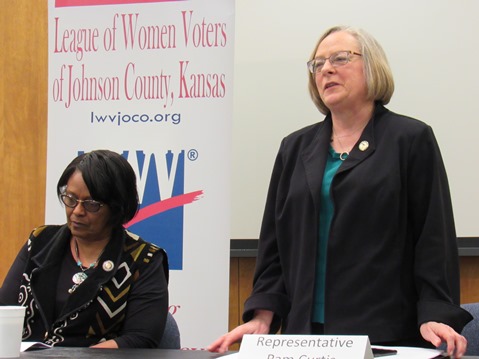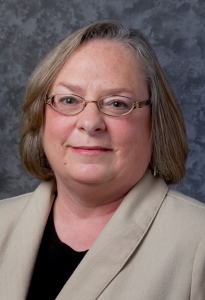
Views
Opinion column
by Murrel Bland
“When anything is going to happen in this country, it happens first in Kansas.” – William Allen White, editor of The Emporia Gazette, 1922.
The above quote is from an editorial written by the famous small-town editor who had a tremendous influence on this country nationally. I couldn’t help but recall that passage when I attended a couple of legislative meetings last week. One was sponsored by the Chamber of Commerce Friday, Feb. 10, and the other was sponsored by the League of Women Voters Saturday, Feb. 11.
State Rep. Pam Horton Curtis (D-32nd Dist.) was at both meetings and talked about what she sees as a possible solution to the money woes that the state of Kansas is facing. Let’s fast-forward 95 years from 1922 when White wrote this commentary to today. Maybe Kansas has found a way out of its fiscal problems and could be an inspiration for other states who have similar challenges.
In White’s era, there was a great hue and cry from the Populist movement. White was aware of these folks, but didn’t have much use for them. Today, we have the Tea Party crowd — people who remind me of the Populists of yesterday. These folks have few solutions to complex problems. Their only answer to any given issue is “No.” Several Kansas candidates promoting this ultra-conservative anti-government approach were defeated last year. This ultra-right frustrated political crowd is the one that elected President Donald J. Trump.
But there has been a change in Kansas, thanks to a serious effort to elect more moderate candidates to the Kansas Legislature. Rep. Curtis says the 60 new legislators, although they are having to go through a learning process, are mostly reasonable people who understand what must be done. Many of them come from Johnson County and understand that public education, particularly K-12, is what makes a community a good place to live. After all, Kansas doesn’t have mountains or seashores to attract people. But the state has always had good schools. State Sen. Pat Pettey, D-Sixth Dist., a former teacher in the Turner school district, points out that Kansas ranks tenth nationally in the quality of public education.
So what is the solution to the state’s money troubles? It is short some $350 million for the present fiscal year and another estimated $600 million short for the next two fiscal years. Rep. Curtis believes it may be in a bill voted out of the House tax committee Thursday, Feb. 9, that would keep the bottom income tax rate at 2.7 percent, a midway rate of 5.25 percent and a top rate of 5.45 percent. The bill would also close the “LLC” loophole that lets business owners escape paying any state income tax.
Rep. Curtis says this bill could cause some pain for individual taxpayers and mean less money for schools. But she said would be a necessary move to help the state’s financial problems.
The unknown factor in state finance is still unknown — how will the Kansas Supreme Court rule concerning the adequacy of school finance. Education presently accounts for about 60 percent of the funds that the Legislature appropriates.
Maybe Kansas has found the solution and, like in William Allen White’s era, can be a national model. Maybe we are seeing the folly of Trump’s anti-government tactics play out every day on television. Maybe Kansas, with a more moderate approach, can lead the way for other states. But even if this current income tax bill gets through the Kansas House, it would have to pass the Kansas Senate. Then it would have to meet with the Gov. Sam Brownback’s approval or have enough votes to withstand his veto.
What Rep. Curtis offers this session is hope—something that wasn’t there last session. New faces in the Kansas Legislature have engendered this hope.
Murrel Bland is the former editor of The Wyandotte West and The Piper Press. He is the executive director of Business West.


